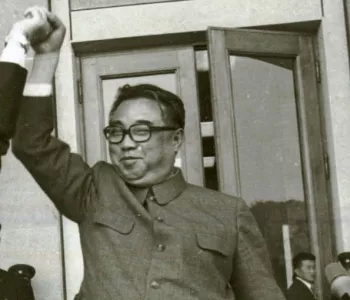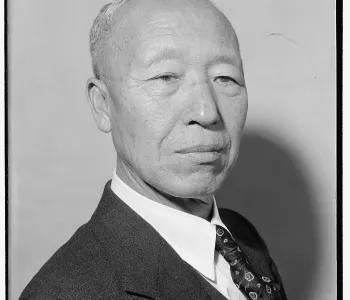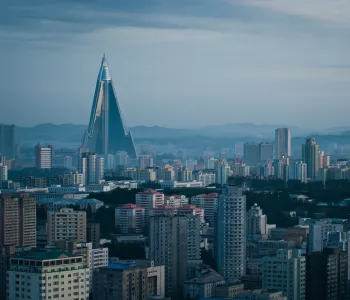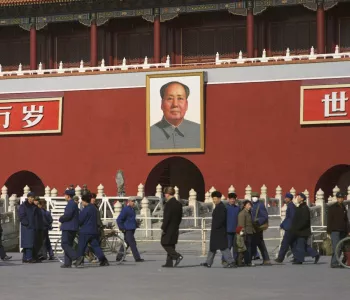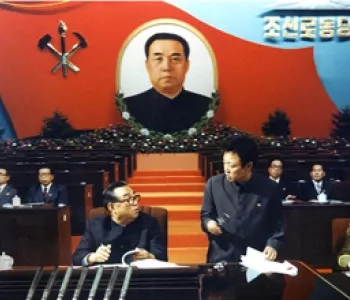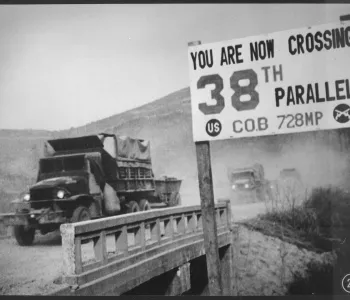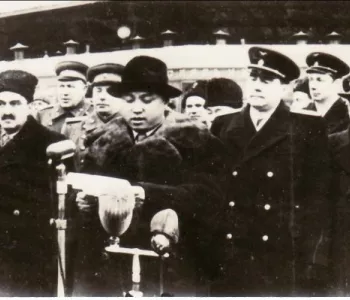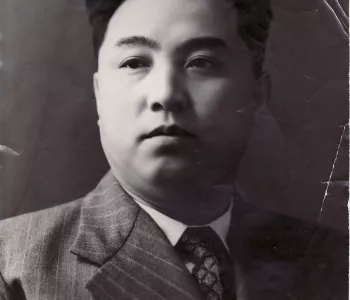d'Vinci

Ho, Ka-i (Heo Ga-i) 1908- 1953
Ho, Ka-i (Heo Ga-i), also known as Alexei Ivanovich Hegai, was one of the leading Soviet Koreans, who played a major role in the establishment of the Korean Workers' Party (KWP).

HEO GA-I (1908-1953). One of the leading Soviet Koreans, who played a major role in the establishment of the Korean Workers' Party (KWP). Various dates are given for his date and place of birth, but the Russian scholar Andrei Lankov has established that he was born Aleksi Ivanovich Hegai in Khabarovsk in 1908. Nothing is known of how his family came to be in the Soviet Far East, although it is known that his father was a teacher in a Korean school. Both his parents died in 1911, and he was brought up by an uncle. He joined the Soviet Communist Youth League in 1924 and soon became an official of the league. In 1934, he attended an agricultural university in Moscow for a brief period but had to leave in order to support his wife and children. By the late 1930s, Heo was one of the leading party cadres in the Soviet Far East. However, he lost his position during the purges and moved to Soviet Central Asia. Although rehabilitated, he did not regain his former status.
Following the defeat of Japan in August 1945, he was conscripted to serve in Korea, where he moved in November 1945. Although most of his fellow conscripts worked as interpreters or translators, Heo was engaged in building up the Korean Communist Party, because of his administrative background, and later played a role in the emergence of the KWP. By September 1948, he was the first deputy secretary of the North Korean Workers' Party, ranking behind Kim Du-bong and Kim Il Sung. When the KWP was formed the following year, he was the first secretary of the central committee, second only to Kim Il Sung, and mainly engaged in party building. His first wife died in 1947, and in 1949 he married Nina Tsoi, a daughter of Piotr lvanovich Tsoi, a Soviet army officer of Korean origin who had survived the Stalinist purges and who in 1948 was posted as a military advisor to the newly established Democratic People's Republic of Korea (DPRK).
Along with a general decline in Soviet influence during the Korean War (1950-53), Heo's position weakened. In late 1950, he was tasked with carrying out an inquiry into KWP members who had remained in the DPRK during the brief United Nations' occupation. He ran this strictly, following Soviet precedents, and many people lost their party membership. At a party plenum in November 1951, Kim Il Sung accused Heo of being too doctrinaire in his approach and sacked him. The real reason for the confrontation seems to have been the clash between Kim's belief in a mass party and Heo's in an elitist, industrial worker-based party. He lost his party positions, although he remained a deputy premier. As the Korean War drew to an end in 1953, Heo was again investigated, and it was reported that he had committed suicide on 2 July 1953. His fall marked the effective end of Soviet Korean influence in the DPRK.
All rights reserved. No portion of this publication may be reproduced, stored in a retrieval system, or transmitted in any form by any means, electronic, mechanical, photocopying, recording or otherwise without the prior written permission of the publisher. (Historical Dictionary of the Democratic People's Republic of Korea, by James E. Hoare, published by RLPG Books, appears by permission of the author and publisher).
Following the defeat of Japan in August 1945, he was conscripted to serve in Korea, where he moved in November 1945. Although most of his fellow conscripts worked as interpreters or translators, Heo was engaged in building up the Korean Communist Party, because of his administrative background, and later played a role in the emergence of the KWP. By September 1948, he was the first deputy secretary of the North Korean Workers' Party, ranking behind Kim Du-bong and Kim Il Sung. When the KWP was formed the following year, he was the first secretary of the central committee, second only to Kim Il Sung, and mainly engaged in party building. His first wife died in 1947, and in 1949 he married Nina Tsoi, a daughter of Piotr lvanovich Tsoi, a Soviet army officer of Korean origin who had survived the Stalinist purges and who in 1948 was posted as a military advisor to the newly established Democratic People's Republic of Korea (DPRK).
Along with a general decline in Soviet influence during the Korean War (1950-53), Heo's position weakened. In late 1950, he was tasked with carrying out an inquiry into KWP members who had remained in the DPRK during the brief United Nations' occupation. He ran this strictly, following Soviet precedents, and many people lost their party membership. At a party plenum in November 1951, Kim Il Sung accused Heo of being too doctrinaire in his approach and sacked him. The real reason for the confrontation seems to have been the clash between Kim's belief in a mass party and Heo's in an elitist, industrial worker-based party. He lost his party positions, although he remained a deputy premier. As the Korean War drew to an end in 1953, Heo was again investigated, and it was reported that he had committed suicide on 2 July 1953. His fall marked the effective end of Soviet Korean influence in the DPRK.
All rights reserved. No portion of this publication may be reproduced, stored in a retrieval system, or transmitted in any form by any means, electronic, mechanical, photocopying, recording or otherwise without the prior written permission of the publisher. (Historical Dictionary of the Democratic People's Republic of Korea, by James E. Hoare, published by RLPG Books, appears by permission of the author and publisher).
